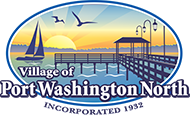Dear Residents,
As Commissioner of the Port Washington-Manhasset Office of Emergency Management, I and the other members of the PWM OEM are reaching out to share answers to questions we are actively getting and to offer a somewhat more local perspective on the coronavirus outbreak.
Q: Should I be concerned and is it coming to our area?
A: You should be concerned but we don’t believe you should be scared.
There have been only 76 diagnosed cases in our country of 330 million residents. That is the equivalent of 1 in every 4.3 million Americans. While a lot is still being learned about this very new virus each day and while it will likely spread further in the country, there are some basic steps, outlined below, to reduce risk to yourself, your family, and to others.
Q: Are the local police, fire, ambulance, and hospitals ready?
A: We have met and/or spoken with Nassau County PD, Port Washington PD, Sands Point PD, Port Washington Fire, Manhasset-Lakeville Fire, and Plandome Fire, among others, and it is clear that they are increasingly ready for their role in any local outbreak.
When contacting first responders or a hospital emergency department, increasingly you will be asked about travel and any specific Covid19-related symptoms.
We have spoken with both St Francis and Northwell hospitals. Both are already doing extensive planning to handle increased patient loads with isolation requirements.
Rest assured that first responders, the medical community, and the emergency management communities are acutely focused on these issues and are deep in preparatory mode.
Q: What is the difference between coronavirus, Covid-19, and SARS-CoV-2?
A: The virus itself has been named “SARS-CoV-2” but the disease it causes has been named Covid-19, which comes from “CoronaVirus Disease 2019”.
Coronavirus is the family of viruses to which it and SARS and MERS (from past years) belong.
Q: When will it peak?
A: The opinions we have heard are that it will peak over the next 2-3 months and decline into the summer months.
Q: Who is most affected by Coronavirus?
A: People who are immuno-compromised or who have other major health issues are at greater risk. Also, the older you are the greater the risk.
Q: How does age impact vulnerability?
A: According to available data from a very recent study of 44,000 cases in China:
Less than 1% were children aged 9 and no deaths were reported.
Only 1.2% were children 10-19 years old and only 1 death was reported.
By contrast, 20% of the people who were 80 years and older died.
The median age of patients was between 49 and 56 years.
Important footnote: Although not yet clear, it seems that the younger populations are often contracting the disease, but the symptoms are milder making diagnosis less likely. Also, it isn’t known if these younger populations are silent carriers who might actually be spreading it.
Q: What can I do to prevent getting this virus?
A: There are a number of basic things you can do to reduce risk to yourself and others:
Wash your hands frequently for at least 20 seconds to be effective.
If soap and water isn’t available, use alcohol-based hand sanitizers.
Try not to touch your eyes, mouth, and nose before sanitizing.
If you are sick, especially with fever, cough, and shortness of breath, isolate yourself and contact your doctor and take care not to infect others with your cough or cold.
If you are diagnosed, tell others who may have been exposed.
Note, it is believed this virus has as long as a 2 to 14-day incubation period without symptoms.
There is no vaccine at this time.
Q: Will masks help?
A: According to the many doctors we have spoken to, masks are not recommended for the otherwise healthy general public for a few reasons:
Many masks add little value and need to be fitted to work.
Viruses are so small they pass through most masks and no mask is 100% effective.
There is a shortage of masks for health care professionals who have to be masked and for people who are actually sick to reduce the risk of their spreading it.
Q: Will there be “disruptions” to work and schools?
A: While this has happened already in other countries, it isn’t clear if or when this could happen here. Nevertheless, some planning is in order. You might wish to consider some of the following:
Who will care for the others that are dependent on you if you were to get sick?
Or conversely, who will care for you if the person upon whom you are dependent becomes ill?
If schools are temporarily closed, who will take care of school-aged children at home?
How will your business operate? Do you have systems in place to accommodate some level of work-from-home computing?
Begin to think these issues through.
Q: How can i get updates from PWMOEM?
A: We will reach out as needed with additional information. Please pass this briefing on to others and encourage them to sign up, no charge, at NorthShoreAlert.org for additional info. If we don’t have your email and text number you will NOT receive these and other key communiques. If you still have trouble signing up or wish to add others, you can email to alerts@pwmoem.org
That is all for now.
Peter Forman
Commissioner
Port Washington-Manhasset Office of Emergency Management
Note: Information re coronavirus is very fluid at the moment. The info we have shared in this briefing is believed to be correct. When something is an opinion, we have tried to make that clear.
https://rss.blackboardconnect.com/175792/website/54252271.xml
https://www.northshorealert.org
